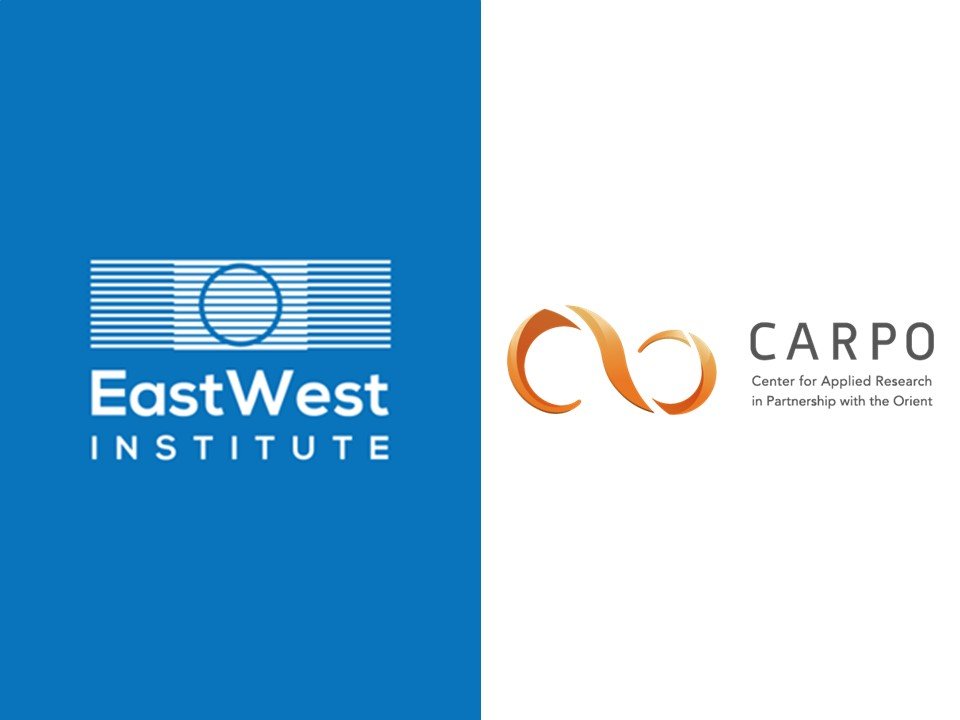
Brussels MENA Briefing: New Iraqi Government in Place: Challenges and Opportunities for Iraq in its Neighborhood
June 9, 2020
On June 9, the Center for Applied Research in Partnership with the Orient (CARPO) and the EastWest Institute (EWI) hosted their fourth “Brussels MENA Briefing”—a series of afterwork briefings on the MENA region—focusing on challenges facing the new Iraqi government, as well as the role the European Union (EU) can play in supporting the new government in Baghdad.
Speakers included Sajad Jiyad, visiting fellow at the European Council on Foreign Relations (ECFR) and former managing director of the Al-Bayan Center for Planning and Studies based in Baghdad, and Daniela Verena Huber, head of the Mediterranean and Middle East Program of the Istituto Affari Internazionali (IAI). EWI’s Vice President of the MENA program, Kawa Hassan, severed as moderator.
On May 6, after nearly six months of political deadlock, Iraq swore in a new government headed by Mustafa Al-Kadhimi, chief of the Iraqi National Intelligence Service. Both speakers stressed the new prime minister would face seven daunting challenges in his new role: collapsing oil prices; the COVID-19 pandemic; meeting protesters’ demands for an early election; tackling rampant corruption of ruling elites; holding government officials and paramilitaries responsible for the violent crackdown of the October uprising accountable; addressing the proxy conflict between the U.S. and Iran in Iraq, as well as developing balanced relations with the two external powers; and increasing ISIS attacks.
Concerning Iraq’s internal socio-economic and political challenges, the experts elaborated on the EU’s potential role in supporting the development of a welfare state that would increase the government’s legitimacy, helping it tackle ubiquitous corruption. In addition, an Iraqi welfare state could provide an alternative to ethno-sectarian identity politics, which have often been instrumentalized for political advantages by both internal and external forces. Furthermore, the briefing shed light on the significance of the EU’s support of Iraq’s territorial integrity and ability to carry out federal solutions within a unified country.
Since 2003, Iraq has been a battleground for the U.S.-Iran proxy conflict. Experts noted that Iraq must formulate a policy to maintain good, diplomatic relations with both powers, pointing to the June 11 U.S.-Iraq strategic dialogue as an example forward. One speaker highlighted that this dialogue might help the U.S. to facilitate the process of Iraq acquiring loans from the IMF and World Bank to tackle the current economic crisis. Others argued that Iraq needs to start a similar, parallel dialogue with Iran, given the importance of the bilateral relationship for Iraq’s stability and security.
Following the killing of General Qasem Soleimani in January, experts observed that while Iran is taking increasing stock of the situation in Iraq, Iraqis are aiming to minimize and manage tension on their own soil—just as they did in the period of 2015-2017, when both Iran and the U.S. supported Iraq in its fight against ISIS.
The discussants mentioned that the EU has historically engaged in “bandwagoning” with the U.S. when it comes to its approach toward Iraq. This has left the EU without a strong policy of its own. However, with the U.S. stepping out of the Joint Comprehensive Plan of Action (JCPOA)—the nuclear agreement between the EU/E3+3 and Iran—and its tensions with Iran rising, the EU is forced to revise and develop its own position towards Iraq and the MENA region as a whole. A priority in this respect, as mentioned in the briefing, is for the EU to understand its capabilities and strengths. The discussants pointed to several policy areas where the EU could best offer its assistance.
Allgemein, Desirée Custers, MENA Briefing